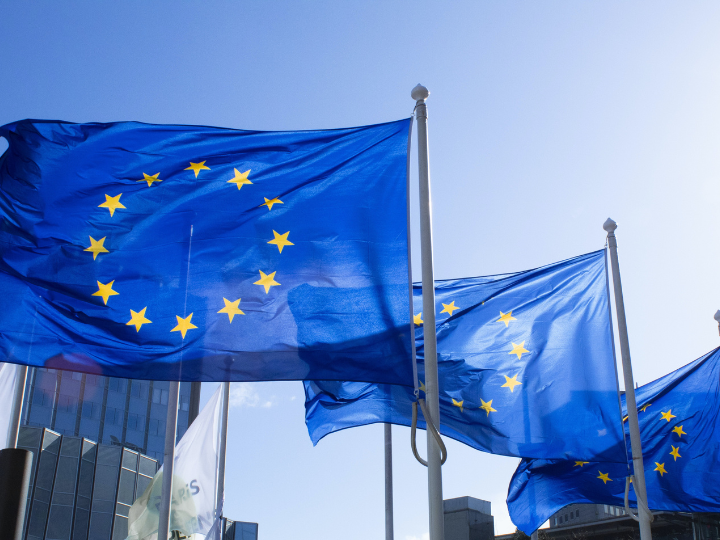by Janos Allenbach-Ammann and Silvia Ellena
With the 2024 European elections and the reorganisation of European Commission jobs looming, Brussels must hurry to conclude crucial negotiations on sustainable and diversified EU trade by the end of 2023.
On the table are two draft laws to ensure no harm to human rights or the environment occurs along EU value chains and several trade agreements, but negotiations are proving to be lengthy and tough – and might not make the deadline.
More trade…
After some comparatively easy wins in the past 12 months, such as concluding negotiations with Chile and signing a free trade agreement with New Zealand, the EU now has its sights on bigger things.
On 20 July, the EU Council gave the European Commission a mandate to start negotiations for a Critical Minerals Agreement (CMA) with the US.
The EU wants its electric vehicle (EV) producers to be considered for generous US subsidies under the Inflation Reduction Act (IRA) despite its local content requirements for EV batteries.
Producers from countries with free trade agreements with the US, like Canada and Mexico, can benefit from IRA subsidies, while European producers are partly excluded.
While the EU will push hard for such a deal, given the fear of losing out in the global race for green industry, the US is unlikely to provide access to its subsidies for free.
The EU Commission would also like to finally seal the deal with the South American trade bloc Mercosur.
While negotiations were concluded in 2019, resistance from France and other countries with strong agricultural interests and environmental concerns led to negotiations for a side agreement to seek assurances over South America’s sustainability policies.
Finalising the deal with Mercosur is one of the big goals of the Spanish EU Council Presidency, but Brazil’s president Lula is not inclined to bow to EU wishes easily.
During the summit between leaders from the EU, Latin America and the Caribbean in mid-July, he called for a more “balanced” agreement that would not see South American countries cede autonomy over their sustainability policies.
With French, Irish, Dutch, and Austrian agricultural interests strongly opposed to the agreement, it will be challenging to get a deal over the line before the end of the year.
The EU is also in the final rounds of negotiations over a free trade agreement with Australia, but disagreements over agricultural market access, geographical indications, and access to Australian minerals have led to a delay.
In mid-July, the Australian trade minister travelled to Brussels, raising hopes for an impending conclusion of the negotiations, only to then break off the talks due to his dissatisfaction over European market access offers.
For over a year, the EU has also been in talks with India over a free trade agreement. The subcontinent is seen by many as a potential alternative to China and an ideal partner for the EU’s goal of trade diversification.
However, negotiations with the traditionally protectionist India are difficult and, as EURACTIV understands, behind schedule. The goal is to conclude talks before the end of the year, as both the EU and India are headed for elections in the spring of 2024.
…more sustainably
While the EU is increasing efforts to diversify and strengthen its trade relations, it is also pushing to make trade more sustainable.
The first piece of legislation presented by the Commission in 2022 and currently under examination by the European Parliament and EU countries is the corporate sustainability due diligence directive (CSDDD), which would make large companies accountable for human rights and environmental violations along their value chain.
EU negotiators are working to agree to adopt the directive after both the European Parliament and member states’ governments agree on their respective positions. But negotiations are sluggish, with differences on several key issues, including the overall scope and value chain definition.
In particular, the Parliament wants to include smaller companies and financial services and cover product sales, distribution, transport, storage and waste management, contrary to the member states’ position.
National governments are also split on several points of the draft law, and negotiations will continue in September, but the Spanish EU Council Presidency will have to try to speed up the process if it wants to reach an agreement before the European elections.
Negotiations on a second piece of legislation aimed at removing products made with forced labour from the EU market are progressing slowly.
The regulation would apply to all products made in the EU, exported from the EU or imported in the EU, which would need to be removed from the market if found tainted by human rights abuses following an investigation by national authorities.
The European Parliament is currently tabling amendments to the regulation and considering extending the rules to transportation, storage, packaging and distribution services which might use forced labour.
Moreover, the lawmakers leading the work on the file want to include remedies for the victims and ensure that companies prove that forced labour was not used for high-risk products from high-risk areas.
EU countries are also examining the draft law, but progress is slower than in Parliament, and it is not clear if negotiations will start before things grind to a halt for the EU vote.
*first published in: Euractiv.com




 By: N. Peter Kramer
By: N. Peter Kramer

